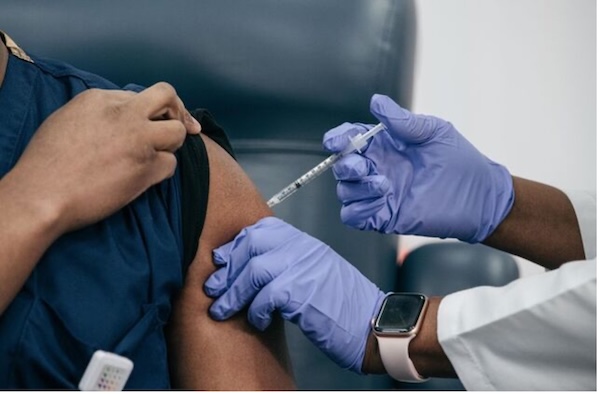What to Know
May 22, 2025
Source: drugdu
 360
360
|In a major policy shift, federal health officials anticipate the shots will be made available to adults 65 and older as well as children and younger adults who have one or more risk factors that make them more vulnerable to severe COVID-19.
The Trump administration on Tuesday unveiled a new plan for updated COVID-19 shots that will likely significantly limit the number of Americans who have access to the vaccines in the fall.
Federal health officials anticipate the shots will be available to adults 65 and older as well as children and younger adults who have one or more risk factors – like cancer, lung disease or obesity as measured by body mass index – that make them more vulnerable to severe COVID-19. For other Americans, the Food and Drug Administration will require an additional clinical trial before signing off on their shots.
FDA Commissioner Marty Makary and FDA vaccine chief Vinay Prasad detailed the plans in an article published Tuesday, writing that the benefits of repeated vaccinations are “uncertain.”
“We simply don’t know whether a healthy 52-year-old woman with a normal BMI who has had Covid-19 three times and has received six previous doses of a Covid-19 vaccine will benefit from the seventh dose,” the pair said.
Previously, federal health agencies recommended that everyone ages 6 months and older get an updated COVID-19 vaccine, putting an emphasis on the importance of the shot “if you are ages 65 and older, are at high risk for severe COVID-19, or have never received a COVID-19 vaccine.”
Last year’s recommendation from the Centers for Disease Control and Prevention stated that “vaccine protection decreases over time, so it is important to get your 2024-2025 COVID-19 vaccine.”
The change of guidance comes as Health and Human Services Secretary Robert F. Kennedy Jr. revamps the nation’s health agencies. Kennedy, who has often spoken out against vaccines, said before his Senate confirmation that he wouldn’t take shots away from those who wanted them.
Here is what to know about the new plan:
Who Can Get the Shots? Who Is Considered ‘High Risk’?
Health officials said that moving forward, the FDA “anticipates that it will be able to make favorable benefit–risk findings for adults over the age of 65 years and for all persons above the age of 6 months with one or more risk factors that put them at high risk for severe Covid-19 outcomes.”
But who is at high risk?
“The range of diseases in the CDC definition of high risk of severe disease is vast, including obesity and even mental health conditions such as depression,” the officials wrote.
The CDC’s list of risk factors for severe COVID-19 also include diabetes, heart conditions, weakened immune systems and pregnancy.
U.S. health officials anticipate that between 100 million and 200 million Americans will have access to vaccines under the definition.
For other Americans between the ages of 6 months and 64 years, the FDA “anticipates the need for randomized, controlled trial data evaluating clinical outcomes before Biologics License Applications can be granted.”
“We do not have gold-standard science to support this for average-risk/low-risk Americans,” Prasad said at an event Tuesday.
It’s unclear if vaccine companies would be able to design, launch and complete such trials before Americans are typically advised to get an updated COVID-19 shot, which, in the past, has happened in the fall.
Prasad said that such trials might not be needed every year but just when the circulating COVID-19 strains change significantly.
Why Is the Trump Administration Making the Change?
U.S. health officials said that the new policy “represents a balance of regulatory flexibility and a commitment to gold-standard science.”
“The FDA will approve vaccines for high-risk persons and, at the same time, demand robust, gold-standard data on persons at low risk,” they wrote in the article.
U.S. health officials specifically cited a lack of data for the change.
“Although the rapid development of multiple Covid-19 vaccines in 2020 represents a major scientific, medical, and regulatory accomplishment, the benefit of repeat dosing – particularly among low-risk persons who may have previously received multiple doses of Covid-19 vaccines, had multiple Covid-19 infections, or both – is uncertain,” they said.
They added that the “American people, along with many health care providers, remain unconvinced,” pointing to poor uptake of the updated COVID-19 shots as evidence.
What Happens Now?
Outside vaccine advisers will gather on Thursday to vote on which COVID-19 strain the updated shots should target. But all eyes will be on a later meeting from the CDC’s vaccine advisory panel, which is tasked with voting on the vaccine recommendations. The panel will likely be asked in June to vote on the FDA’s new plan. They could opt to tweak or change the proposal, but the CDC director must sign off on the recommendations for them to become official. The recommendations, once approved by the CDC, determine which shots will be covered by insurance.
Read more on
- Rovaxitinib approved for marketing, filling the demand for myelofibrosis treatment March 2, 2026
- Warrant Pharmaceuticals’ active pharmaceutical ingredient receives Brazil’s first official GMP certification March 2, 2026
- Merck’s New Story March 2, 2026
- Rongchang Biotechnology has turned a profit! March 2, 2026
- Jiuyuan Gene’s “Simeglucopyranoside” for weight loss (Jikeqin®) has been submitted for market approval March 2, 2026
your submission has already been received.
OK
Subscribe
Please enter a valid Email address!
Submit
The most relevant industry news & insight will be sent to you every two weeks.



